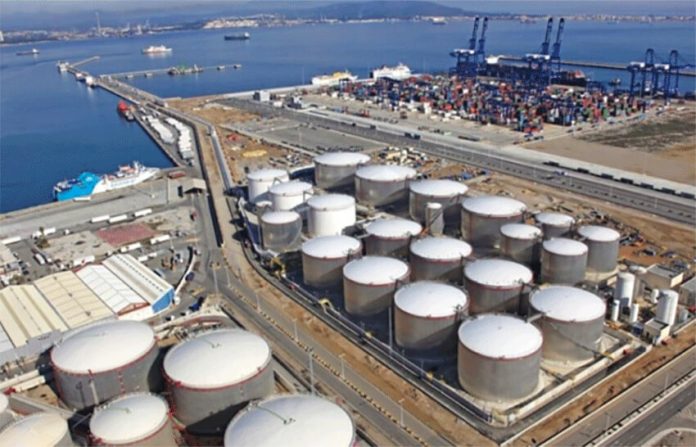A United States company whose Veracruz fuel storage terminal was shut down by the federal government five months ago announced Monday that it intends to sue Mexico for US $667 million.
The Energy Regulatory Commission (CRE) closed Houston-based Monterra Energy’s terminal in Tuxpan in mid-September.
According to The Wall Street Journal, the facility was “closed at gunpoint by the Mexican government in the wee hours of September 14 and has not been allowed to operate since.”
The closure of the terminal, which stored imported fuel that supplied privately owned gas stations, was widely seen as one of several moves to help support the state oil company Pemex.
In an opinion piece published Monday, columnist Mary Anastasia O’Grady, a regular critic of President López Obrador and his administration, reported on Monterra’s planned compensation claim and offered her assessment of the situation.
Monterra, owned by the United States-based global investment firm KKR, sent a notification to the Economy Ministry advising that its investors are seeking $667 million in compensation for the terminal closure as well as interest and legal costs.
“Yet any financial settlement that Mexico may be forced to pay is likely to be dwarfed by the damage caused to the country’s reputation as a destination for capital,” O’Grady wrote.
Monterra investors intend to submit claims to arbitration under the United States-Mexico-Canada Agreement (USMCA) and NAFTA, the current free trade pact’s predecessor.
“What does the need to appeal to an international tribunal to recover … [KKR’s] investment say about the rule of law in Mexico? Nothing good,” O’Grady opined.
The columnist, who is also a WSJ editorial board member, said the Mexican government could respond to Monterra’s notification by allowing the company to resume its operation of the Tuxpan facility.
However, “after a 90-day cooling-off period, the company may go to arbitration before an international tribunal,” O’Grady wrote.
“Reading the investors’ 17-page notice it’s hard to tell where the sheer incompetence of AMLO’s banana-republic bureaucracy leaves off and the abuse of state power to undermine the project takes over,” she said.
“The notification suggests the local Monterra company endured a combination of both before Mexico finally expropriated the property in violation of the country’s NAFTA commitments,” O’Grady wrote.
“… The investors say the company was in communication with the Energy Regulatory Commission and complied with all documentary requirements. A September 2020 revised request for approval of storage rates received no response, which meant by law it was ‘deemed automatically approved.’”
O’Grady noted that the Monterra investors charged that the CRE “harassed” the company “with duplicative and pretextual requests for information and documents that it already had.”
“The trouble went beyond paperwork,” she wrote. “In 2020 and 2021 the investors allege ‘a series of sham inspections in search of a pretext to shut down [the local company’s] operations.’”
O’Grady also noted that the Monterra investors’ notification “says that Mexico’s accusations that the company failed to prove it had the proper permits and documentation are demonstrably false,” and “’Mexico was not interested in the legality of the product stored at the storage terminal; their only goal was to shut the storage terminal down to further Mexico’s protectionist policies.’”
Mexican courts have “turned a blind eye” and “thwarted” Monterra’s attempts to have its day in court, “placing it in a state of defenselessness,” the notification states.
“Monterra is making official what many investors already know,” O’Grady wrote before citing Neil Herrington, senior vice president for the Americas at the U.S. Chamber of Commerce, who told her that foreign direct investment in Mexico had not reached 2017 levels – $65 billion – during López Obrador’s time in office.
To understand why an investment boom is not occurring in Mexico at a time when manufacturing in China is less attractive and production closer to the U.S. is favored, “look no further than the seizure of Monterra’s terminal,” the columnist concluded.
With reports from The Wall Street Journal
